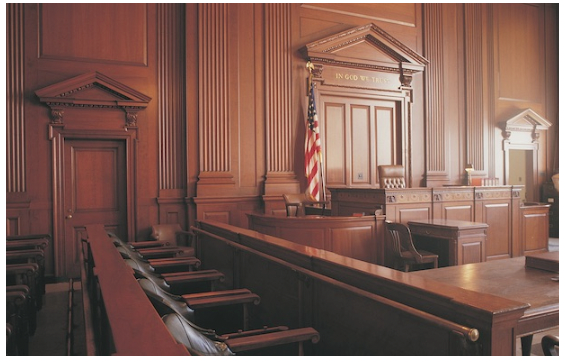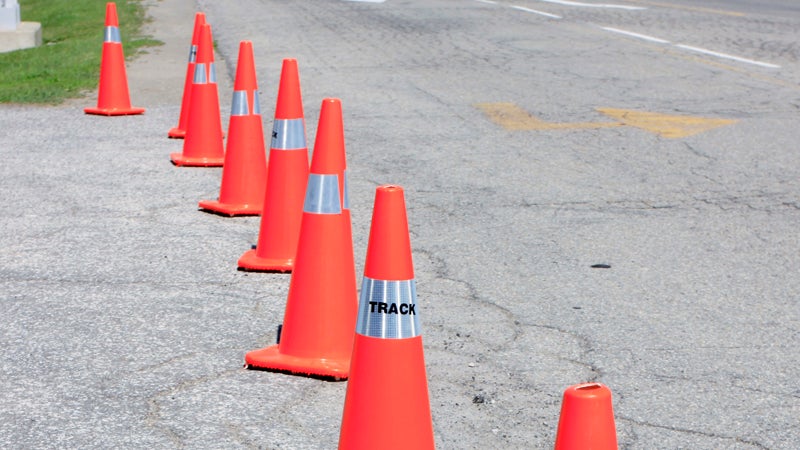Several criminal justice reform bills will be on agenda for legislators
Published 7:46 am Monday, April 3, 2023
|
Getting your Trinity Audio player ready...
|
By Emily Burleigh
American Press
Several bills regarding criminal justice reform in Louisiana will be proposed at the upcoming legislative session, which will run from April 10 to June 9.
The Southwest Louisiana Community Coalition for Action, alongside representatives from several criminal justice reform advocacy groups, gathered this week at New Covenant Faith Baptist Church to discuss upcoming legislation and the expansive effects of Louisiana’s criminal justice system.
“The thrust is to inform the people of Louisiana… about the issues that affect all our quality of life in the area of criminal justice,” said the Rev. J.L. Franklin, president of the Southwest Louisiana Community Coalition for Action.
Legislation abolishing capital punishment will be reintroduced to lawmakers during the upcoming legislative session.
According to the Death Penalty Information Center, Louisiana is one of 27 states that delivers capital punishment and currently has 62 death row prisoners.
Support for the abolition of capital punishment in Louisiana is often fiscally motivated, said Bobby Holmes, Chief of Litigation with the Calcasieu Parish District Attorney’s Office.
In 2022, Louisiana spent over $7 million on capital punishment defense; the last execution in Louisiana took place in 2010.
Additionally, Louisiana Gov. John Bel Edwards announced his opposition to capital punishment at a seminar at Loyola University earlier this week.
Voice of the Experienced (VOTE) – a grassroots non-profit that advocates for those oppressed by criminalization and racism – discussed their priority issue areas and corresponding bills that will be discussed at the upcoming legislative session.
One primary goal for those seeking criminal justice reform is to institute unanimous jury retroactivity.
An amendment prohibiting non-unanimous jury convictions was passed in Louisiana in 2018, applying to crimes committed after Jan. 1 2019. This amendment was strengthened when the U.S. The Supreme Court decided that non-unanimous verdicts were unconstitutional in 2020.
However, the prohibition of non-unanimous jury convictions does not apply to cases before Jan. 1 2019. This was solidified by the U.S. supreme court in 2020 in the case Ramos v. Louisiana, where the court ruled that the amendment could not be applied retroactively.
For many, this is a problem.
Over 1,500 people in Louisiana are incarcerated on the decision of a non-unanimous jury, which Katie Hunter-Lowrey, Crime Survivor Organizer & Policy Advocate with The Promise of Justice Initiative, called “Jim Crow jury verdicts.”
Non-unanimous jury convictions date back to the Jim Crow era, and were often instituted to limit the “voice and freedom of Black citizens,” as reported by the Louisiana Illuminator. “By allowing 10-2 or 11-1 verdicts in felony criminal cases, a court could silence the dissenting voices of Black jurors.”
Activists also hope to reform parole eligibility requirements for incarcerates in Louisiana that are currently sentenced to Life Without Parole (LWOP) and Juvenile Life Without Parole (JLWOP).
LWOP and JLWOP convictions are a primary driver for Louisiana’s high incarceration rates. According to the Sentencing Project, 19 percent of Louisiana’s prison population have been sentenced to LWOP – 5,997.
These rates would drop with legislative reform.
This reform aims to remove the age requirement. Currently, to become eligible for parole one must have served at least 20 years and reach the age of 45. The age requirement leaves those who were incarcerated at a younger age facing harsher sentences. By removing the age requirement, parole opportunities become more equitable.
Another opportunity to reduce Louisiana incarceration rate comes with a reformation of the habitual offender statute, which results in repeat offenders accuring longer sentences for each subsequent conviction.
VOTE and other prison reform activists are seeking to have all non-violent offenses from HOA applications to aid in reducing incarceration rates.
This legislation was originally created to give chronically violent offenders more severe penalties. Over time, this has been applied to non-violent offenders – 64% of people serving time in Louisiana prisons under this statute are non-violent offenders, according to a report from Louisianans for Prison Alternatives.
Legislative changes that would improve the quality of life for those incarcerated and recently released were also mentioned.
A focus of criminal justice reform is advocacy for mental health, and many incarcerated have limited access to mental health services. The Advocate for Ongoing Mental Health Assessments Bill pushed to create a multidisciplinary team to train correctional staff annually, require regular inmate mental health checks, expand the Department of Corrections list of serious mental illnesses, and provide inpatient and outpatient services, treatment plans and goals.
A continued hurdle of recently released inmates is securing housing. Ronald Marshall, Policy Analyst with VOTE, cited his own struggles. He stated that many landlords require a $40 background check, but don’t disclose tenant eligibility upfront. The results in potential tenants with a criminal record paying a fee with no chance of being eligible for housing.
Advocacy groups want to introduce legislation that would require landlords to be more transparent about admissions restrictions.





